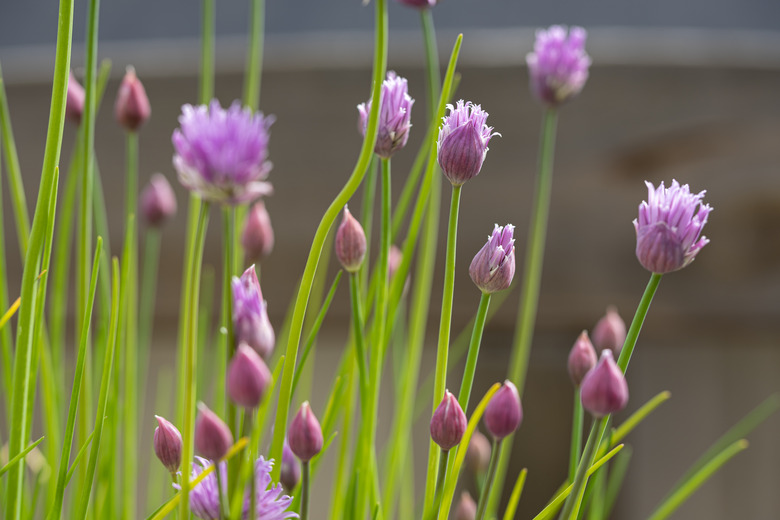Plants That Keep Away Spider Mites
We may receive a commission on purchases made from links.
There are many plants prone to spider mites, but did you know that there are also plants that repel spider mites and other garden pests? You might be inclined to seek out the best insecticide for spider mites or perhaps even make your own spider mite spray, but pesticides can do more harm than good, often killing off other beneficial garden bugs, such as ladybugs, that enjoy a steady diet of spider mites. Companion planting for pest control is a safer, more natural, and often more effective method to control spider mites, aphids, and other common plant parasites.
The Basics of Companion Planting
The Basics of Companion Planting
Companion planting, also known as interplanting, refers to the gardening method of growing two or more plants together in order to benefit one or all of the plants. This could be done to provide support. For example, sunflowers and peas can be planted together so that the tall stalk of the sunflower can support the sprawling pea crop. It can also be done to regulate shade, as in the many cases of lettuce grown in the shadow of corn. Interplanting to control bugs is a natural and practical way to keep unwanted guests from feasting on your crops, and there are several companion plants that act as natural spider mite repellants.
Common Herbs to Control Pests
Common Herbs to Control Pests
Lacy dill leaves add a delicate texture to your garden as well as a desirable amount of pest control due to their scent. This self-seeding, sun-loving annual is a crucial ingredient when making your own dill pickles, and it also repels cabbage loopers, aphids, squash bugs, and spider mites. In addition, dill is known to attract predatory insects and other beneficial bugs, such as wasps.
A cool weather herb, chives thrive in moist soil and can tolerate partial shade, making them an easy choice to sprinkle in the shadier spots of your garden that may be in need of damage control due to spider mites. Chives not only help to repel spider mites but also aphids and carrot flies, and they are useful to have on hand in the kitchen, where they add flavor to salads and dips.
The easy-growing cilantro is a must-have when facing a spider mite infestation, with its strong aroma that can repel a range of garden pests, including aphids and potato beetles, and with the added perk of attracting predatory insects, such as hoverflies, which eat aphids. During the hottest months, cilantro does best with some afternoon shade. You'll need to plant it close to the plants you want to protect in order to ensure its benefit but not too close that it could get tangled with neighboring plants. While cilantro is especially helpful when planted near things like broccoli, cabbage, and kale, it should never be planted with fennel or dill, as the two will cross-pollinate.
Other Plants to Keep Away Spider Mites
Other Plants to Keep Away Spider Mites
Garlic is a great addition to many recipes, and it's also an essential companion plant, warding off many pests with its pungent odor. When mixed into garden beds, garlic plants, which love full sun, can repel not only spider mites but also cabbage loopers, fungus gnats, and coding moths.
More than a cold-hardy fall favorite, chrysanthemums, or mums, are a natural producer of pyrethrin, an ingredient found in many commercial insecticides, consistently keeping a variety of garden-harming insects at bay while the plant remains nontoxic. Mums grow best in well-drained, evenly moist soil and full sun.
